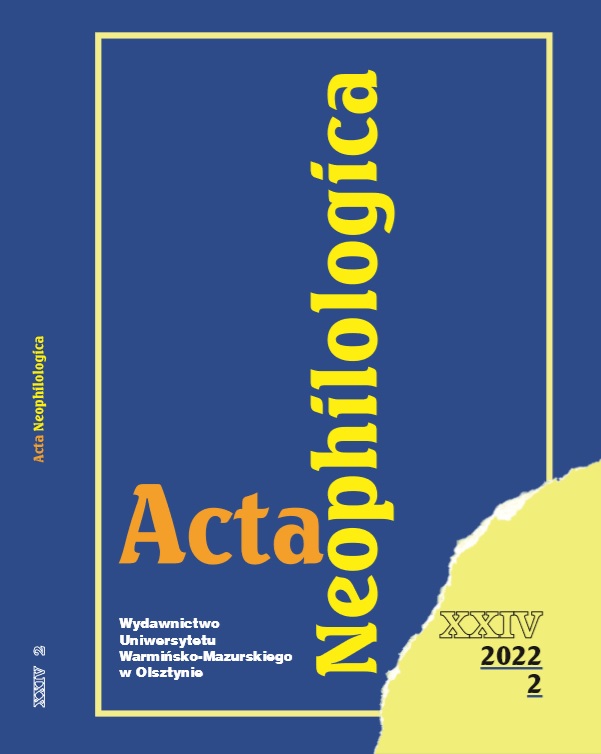Ein gutes Gewissen ist ein sanftes Ruhekissen... Bemerkungen über Phraseologismen mit dem Potenzial zum ethischen Bewerten
A Clear Conscience Makes a Soft Pillow... Phrasemes
with a Potential for Ethical Judgement
Author(s): Tomasz ZurawlewSubject(s): Language and Literature Studies, Theoretical Linguistics, Philology
Published by: Wydawnictwo Uniwersytetu Warmińsko-Mazurskiego w Olsztynie
Keywords: set phrases; judgment based on ethical criteria; moral convictions embedded in language; ethical norms
Summary/Abstract: This article examines the linguistic expression of moral values in selected German phrasemes which have the potential for formulating judgements concerning human attitudes based on ethical criteria. An attempt was made to identify factors affecting the robustness of that potential, the ways in which that potential is manifested, and the type of relationships between the analyzed phrasemes and moral values.The moral convictions of language users that are embedded in the German language were also analyzed. The study demonstrated that in colloquial German, morality is portrayed in an intellectual and emotive context as the essence of subjective human experience. Linguistic data confirm that moral norms are perceived by language users as an objective truth that should be respected. The potential of phrasemes forpassing ethical judgements stems from the relationship between phrasemes and their characteristic formal attributes, including their figurative and expressive meaning. This potential is manifested explicitly or implicitly, and its perlocutionary strength is often determined by the metaphorical motivation of a given phraseme. The analysis confirmed that the potential of phrasemes is also influenced by the connotative dimension of the lexicon in specific phrasemes. In the most general and broadest sense, the potential of phrasemes for formulating ethical judgements about human attitudes is conditioned by the anthropocentric interpretation of reality. The study revealed that phrasemes with a potential for making ethical judgements are bound by three types of relationships with morality: they should be regarded as a tool for assessing human attitudes, as a source of knowledge about moral values preferred by language users, and as carriers of moral values that are co-responsible for embedding these values in collective memory.The results of this study have practical implications for research in axiological linguisticsand applied ethics.
Journal: Acta Neophilologica
- Issue Year: 2/2022
- Issue No: XXIV
- Page Range: 57-72
- Page Count: 16
- Language: German

